The COVID-19 vaccine is every human’s right.
The global distribution of COVID-19 vaccines is strikingly uneven. African communities, just as with the rest of the world, look ahead to a time when people are fully vaccinated and can move forward with their lives – but for most of the continent, this is a distant prospect.
We urge you to join with us to achieve vaccine solidarity. To make sure no one is left behind.
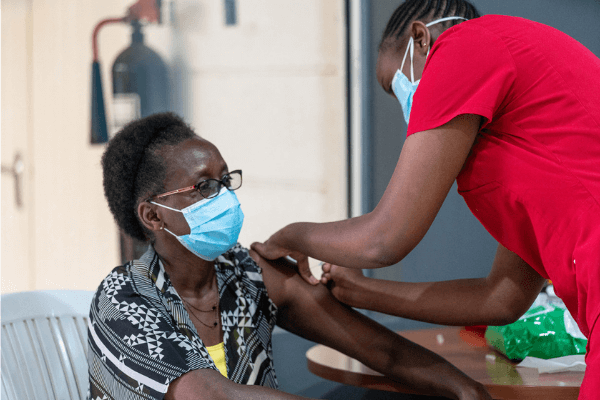
Photo by: Leonardo Mangia
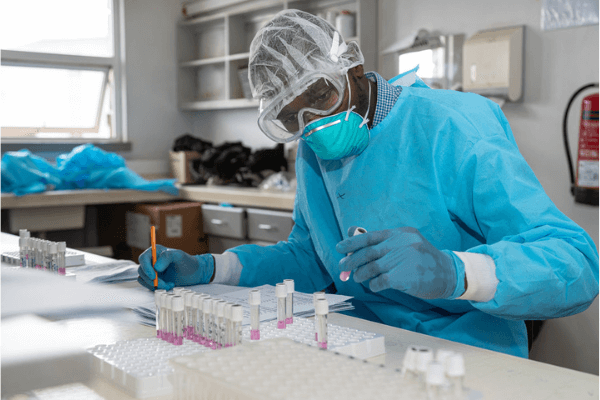
Photo by: Leonardo Mangia
With your help we can ensure that these vaccines are administered by well-trained health workers, that they arrive at their destination safely – even in remote areas – and that the vaccines are stored in the appropriate conditions. We are striving to create conditions for a successful COVID-19 vaccination campaign in Africa: one that has communities at its heart.
No one is safe until everyone is safe. Join our Vaccine Solidarity with Africa movement by donating today
Vaccine Solidarity with Africa Campaign
Amref Health Africa is part of an active movement to address the uneven distribution of COVID-19 vaccines – specifically across Africa. Current data indicate that only 16% of the population of the African continent is fully vaccinated against COVID-19. 63% of the North American population, and 65% of the population of Europe, is fully vaccinated (Source: World In Data, April 19, 2022).
As global citizens, we all have a role to play. We are committed to making sure no one is left behind even in the most remote communities. Together we can have a profound impact – one that has communities at its heart.
Our dedicated donors, partners and staff here in Canada and around the world are bringing real change on a daily basis. Thank you for being part of the journey and solution with us!
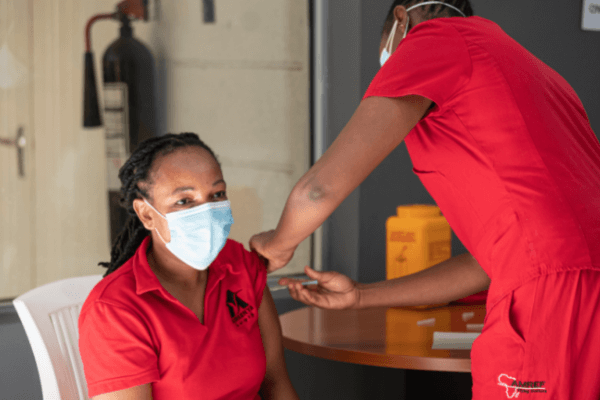
Photo by: Leonardo Mangia
Did You Know?
Across the continent of Africa, COVID-19 vaccines are in short supply, and vaccination rates are severely low. This poses a serious threat as, according to the World Health Organization, Africa may not achieve herd immunity (60 percent of the population inoculated) until 2023 if the current slow pace continues. That means more severe illness, more deaths, and possibly more variants of the virus.
It also means that the major negative effects that COVID-19 has had on youth and women, in particular, will continue. According to Amref Health Africa’s research child marriage, sexual and gender-based violence, and female genital mutilation/cutting (FGM/C) are all on the rise.
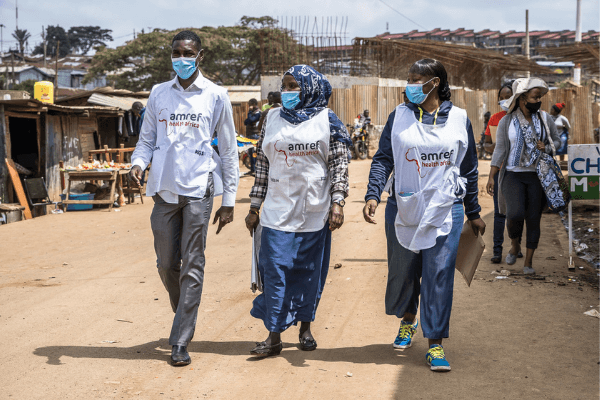
Photo by: Brian Otieno
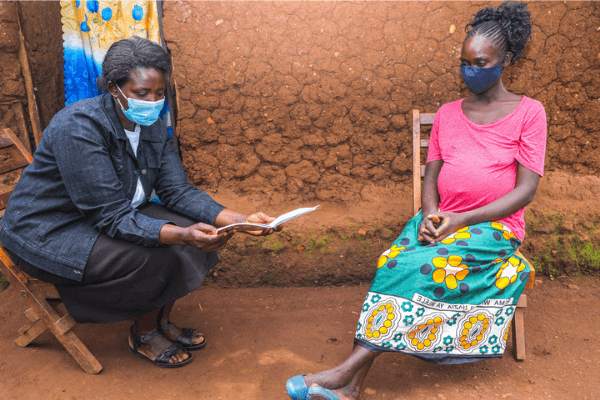
Photo by: Kennedy Musyoka
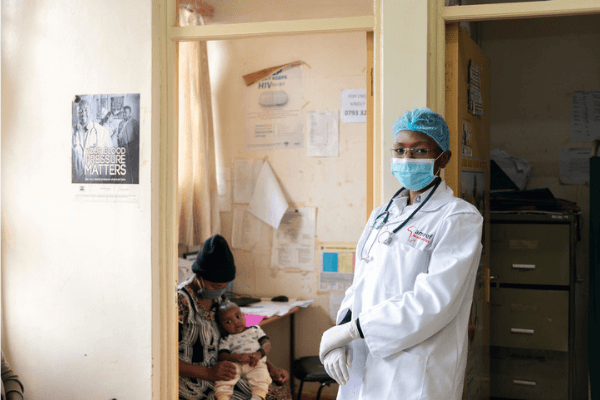
Photo by: Kelvin Gitonga
Research highlights:
1. Child marriage
- Not only has child marriage increased during the COVID 19 epidemic, according to the majority of Kenyans, Senegalese and Ugandans surveyed, but girls are being married at younger ages.
- Financial problems were the most common reasons given for child marriage during COVID-19. Other notable reasons include lack of hope for education and the closure of schools.
2. Gender-based violence
- Many Kenyans, Senegalese and Ugandans surveyed reported an increase in frequency of violence from their partners during the COVID-19 pandemic
- The most common forms of violence in Kenya and Uganda reported were lack of communication, denial of basic things and money, physical beatings and verbal abuse.
- In Senegal, the most commonly reported forms of violence were rape and sexual assault, physical beatings and verbal abuse.
3. Female Genital Mutilation/Cutting (FGM/C)
- Respondents located in Kenya reported that the girls in their communities were subjected to FGM/C during the pandemic.
- Of those who reported FGM/C practice in their community, all of them stated that it increased during the pandemic.
How you can help achieve Vaccine Solidarity with Africa
Vaccine solidarity is of utmost priority to end COVID-19 in Africa and around the world.
With your support, we can build vaccine solidarity with Africa. Join us in ensuring everyone everywhere has access to COVID-19 vaccines by donating today:
- $10 could provide one frontline health worker with a certified facemask and sanitizer (500 ml) to work safely for a month.
- $15 could provide a reflector or flag jacket, badge, and carrier to a health care worker with enough sanitizer and prevention information for one month.
- $25 could produce COVID-19 educational material for 1,000 community members.
- $50 could train and deploy one Community Health Worker for a month to share COVID-19 information with communities. This includes, for example, facilitating handwashing training in the school health clubs.
- $100 could build fabricated handwashing stations with soap dispensers and 100 litres water capacity (per unit) for health facilities and schools.
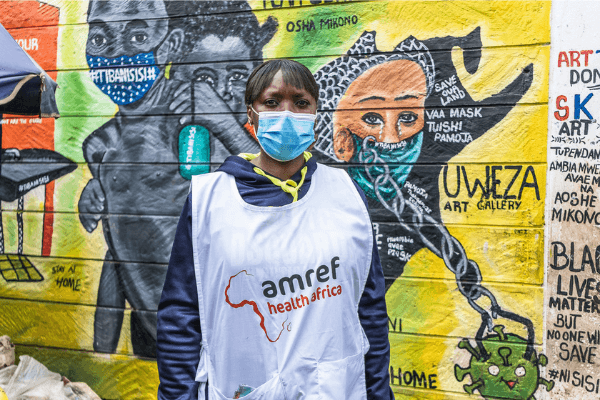
Photo by: Brian Otieno
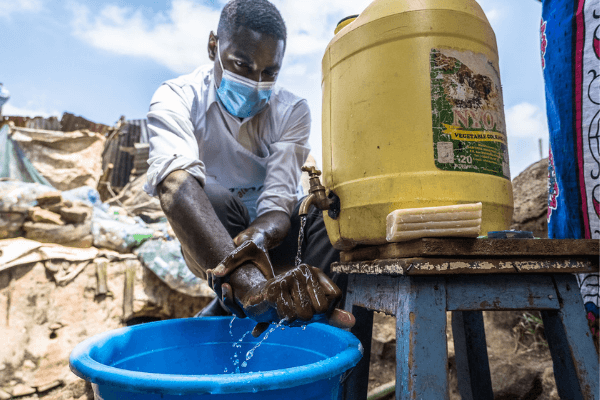
Photo by: Brian Otieno
Our Impact
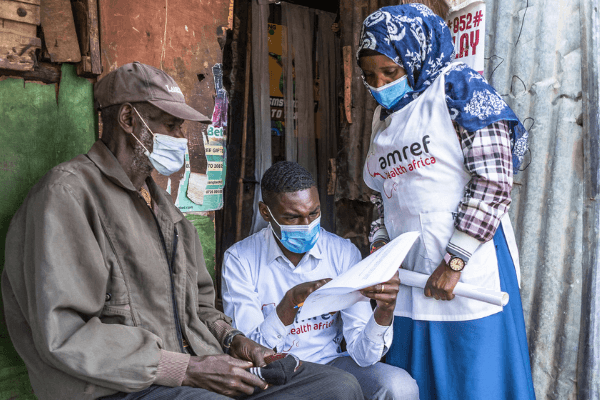
Photo by: Brian Otieno
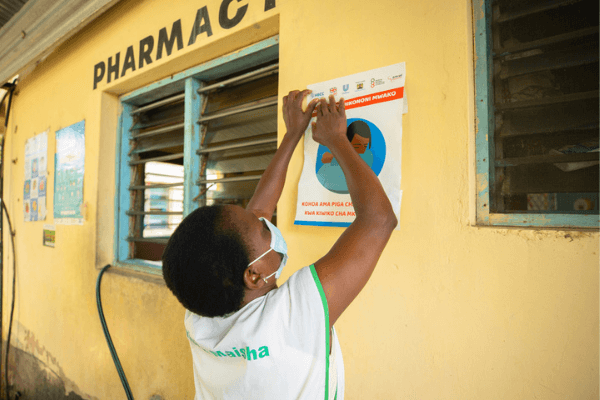
Photo by: Steve Kagia
Amref Health Africa in Canada is committed to help stop the spread of COVID-19 in Africa.
Before the World Health Organization declared COVID-19 a pandemic in March 2020, we were on-the-ground partnering with communities and governments in Africa to respond to the disease.
Highlights of our COVID-19 response, made possible with the help of Canadian supporters, include:
- 192,000+ community and facility health workers trained in prevention and treatment of COVID-19
- 75,000+ health workers provided with personal protective equipment (PPE), such as masks, gowns and gloves
- 13,000+ people tested for COVID-19 in Amref Health Africa clinics
- 3.9+ million people reached with water, hygiene and sanitation supplies, such as clean water, handwashing stations, hand sanitizer and soap
*data is as of December 2020
